Charles Pakana (Victorian Aboriginal News):
I’m joined today on the Referendum 23 Tapes podcast by Yorta Yorta man Ian Hamm, who, aside from being a member of and advocating for the stolen generations, devotes himself to improving the representation of Aboriginal people on boards and other high-level governance. Ian, thanks for joining me on the podcast today.
Ian Hamm:
Pleasure, Charles.
Charles:
Ian, you were at the Aborigines Advancement League on Sunday, the 7th of September for the Aboriginal Leaders for the Voice. Why were you actually there?
Ian:
I was there because I think it was an important statement to be made to not only us as a group of Aboriginal people, but also the opportunity to be seen by the press who were taking that obviously on the news that night that Aboriginal people in Victoria and a substantive amount of people and people who are in influential roles across the Aboriginal community are saying, “This is really important.” This is something which the bulk of Aboriginal people in Victoria support. So it is important to be there, to be seen, and to be able to speak to why this referendum is important to support.
Charles:
You come at it from a bit of a different angle to a lot of other people. I’ve noticed that this distinct lack of the emotive arguments in there and going back too far in history and trying to almost at times, and this is what some members of the Yes campaign have done to guilt people into voting. Yes. You’re a much more pragmatic approach to it. So how would you actually define your approach to Yes advocacy for the Voice?
Ian:
Yeah, I suppose I look at it, Charles, that referendums themselves are critical points in a country’s history. So unlike a lot of nations, Australia’s constitution can only be amended by the direct input of the Australian population, writ large, all those who can vote. That’s actually an unusual circumstance for a country when it thinks about who are we as a nation, what do we actually stand for, and that can be quite aligned to constitutions.
The important part for us this time around is not where we have been as a country, but it’s actually who are we as a country. What does this say about ourselves in this decision that we make? Where do we want to go as a people, as a nation? That’s how I talk to people. It’s not about us as the Aboriginal people as much as it is about the rest of the country. The 97% who aren’t us have got skin in this game. This is them having to make a critical judgment that has a yes or no answer that has huge ramifications, not just for us as Aboriginal people, but for everyone who is an Australian and how our country sees itself and more importantly, where it is going.
Charles:
Well, what is the skin in the game actually for the other 97%, because what we’ve heard since day one, as soon as Albanese announced the referendum is that, “Well, we want to stand back.” This is the 97% or large majority of the 97% saying, “We want to stand back. We want to hear what our Aboriginal elders and community members have got to say. We’ll then follow that lead.” You’re now saying, “Well, look, it’s not just that. You’ve got skin in the game.” What is skin in the game?
Ian:
Okay, so that skin in the game basically goes to a fairly simple question. If you break it down and take all the fluff and the noise from the yes and the no camps away. The substantive question before the Australian public is a simple one, it is, should the Aborigines be able to speak? Once you analyze it, break it down, you get to that point of should the Aborigines be able to speak. Should I as a voter, allow the Aborigines to talk about things that are about them? Yes or no? That’s the question every Australian voter has to ask themselves, and that’s not one under guidance from some Aboriginal people. That’s actually, whoa, if I’m one of the other 97%, I have to ask myself the question, should I allow the Aborigines to be able to talk about things that are about them? What does that say about me as a person? Whether I answer yes or whether I answer no.
Charles:
So this is not in the hands of the politicians anymore, if it were just legislative, but now as a constitutional matter, it’s everyone.
Ian:
It’s in my hands as an Australian voter, yes or no. It’s not, I elected a government that had a policy of doing this, which would do it like it would do. I don’t know, tax reform or building regulations or anything of that nature. This is a direct question of me, the voter, all 16 million of us asking those same two questions, should the Aborigines be able to speak? Should I as a voter allow the Aborigines to talk about them? And every vote counts. That’s why every Australian has got skin in this game.
Charles:
But Ian, let’s be a little bit of a devil’s advocate here right now, because I can hear a lot of the audience right now saying, “Well, but they already have a voice.” They already, A have a vote, B … I’m going to bring it up and I know what your argument is going to be, we’ve got these 11 First Nations parliamentarians, who can be voted out tomorrow. So I’m preempting, but we do have the Peak organizations. We’ve got VACCHO, we’ve got the Coalition of Peaks. Isn’t there already voice or voices that government can listen to when it comes to forming policies and legislations?
Ian:
Okay, so on the first point you made Aboriginal people vote like everybody else. The issue, well, it’s not an issue for me, but the problem with that is that we are just one vote amongst the myriad of voters of whatever electorate we are in, and to be brutally honest, we are a small group. I mean, a former minister for Aboriginal affairs gave me a very blunt piece of advice and he was absolutely correct, there’s no votes in blackfellas. You can get a vote from a blackfella, but there’s no votes in blackfellas. He was absolutely right. So we’re just-
Charles:
You’re not going to mention the name.
Ian:
No. A very wise person, and he was right. You don’t win an election on running an Aboriginal agenda.
Charles:
Right.
Ian:
You might lose one if you’re seen to be overtly Aboriginal, pro-Aboriginal, are we’re seeing that, I think play out in this referendum. But the point was this minister’s point was is that as a voter, sure you vote, but when you vote, you’re one of 16 million people-
Charles:
For sure.
Ian:
… And the bigger issues tend to dominate, Aboriginal stuff is small beer. So yeah, the second one of what about the parliamentarians? There are 11 Aboriginal people in Parliament. They are parliamentarians who are Aboriginal people. They are not the representatives of the Aboriginal people.
Charles:
Absolutely
Ian:
None of them were elected from an Aboriginal constituency. We have several senators who are elected by their states. We have some people in the House of Representatives, Linda Burney for example, she’s the member for Barton. Her constituency is the people of Barton.
Charles:
And she’s actually been on the record of saying that.
Ian:
She’s saying that, she’s not a representative of Aboriginal people. She happens to be a member of Parliament who is Aboriginal. It would be like, well when Josh Frydenberg was in Parliament, he’s saying even though his seat is, whatever his seat was, saying actually he’s not the representative of that electorate, even though he was voted in to represent it, he’s actually the representative of the Jewish people because he’s Jewish. Well, he’s not. He was the member for the name of his electorate. How quickly they forget. But that, it’s the same thing. So we have Aboriginal people in Parliament, but they’re not representatives of an Aboriginal constituency.
Charles:
What about the peak bodies and the Coalition of Peaks?
Ian:
Getting to the Peaks. Okay. So the Peaks do a very good job and the Coalition of Peaks, however, they are not representatives of the people. They are a portfolio-specific agency, so NACCHO looks at Health. NATSILS, National Aboriginal Islander Legal Service looks at the justice systems, SNAICC looks at children’s issues, and they’re usually formulated around what’s wrong, what is the deficits, what is the gaps as it were between the broad Australian statistical data and the Aboriginal statistical data and what are the gaps and deficits? So they’re very portfolio-focused.
That means they’re not representative and they themselves say they don’t say they are the representatives of the broad Aboriginal community, and that’s the vacuum we have. The ordinary views and voices of ordinary Aboriginal people have no mechanism to be heard. There is no way for those to come up. There are those who seem to be called an Aboriginal leader is pretty easy these days. What you do is you get your name in the paper twice in the one week and be on radio or television, bang you’re a leader. Gets tossed around pretty, I mean, it gets tossed around. It’s a bit cynical.
Charles:
It’s a bit cynical.
Ian:
Whenever I say … You have a look yourself, the amount of people who seem to suddenly be an Aboriginal leader, none of us asked for it, we just seem to be called that. I mean, when people refer to me as Aboriginal leader, I’m not, nobody died and put me in charge. I’m just a guy who goes around my business as everybody else is, and we get this tag of leader. But besides that, the broad Aboriginal population, the ordinary people who are out there just doing their stuff on a day-to-day basis, dealing with whatever circumstances they’re in, there’s no mechanisms for them to be heard. There’s no mechanisms for them to even speak. Our Peaks do a very good job, and the Coalition of Peaks do a very good job, particularly in dealing with government as equals NACCHO, health department. NATSILS, justice departments. SNAICC, childcare.
Charles:
We’ve got all those in. Let me continue playing the devil’s advocate for a bit longer then. A lot of those Peaks that you’ve spoken about, these are addressing key metrics within Closing the Gap.
Ian:
Yeah.
Charles:
And Closing the Gap is this critical thing that needs to be addressed and it’s been unsuccessfully addressed by successive government on both sides of the political spectrum. Do we really need to have another voice if we’ve already got these voices addressing the key metrics and the Closing the Gap?
Ian:
The problem with the whole frame of seeing us as entirely … The Closing the Gap framework is critically important. It looks at the Aboriginal community as a whole. It looks at life to death and everything in between for every Aboriginal person in the country. But it is built around key metrics. It is built around a deficit approach. It defines us as if all we are is a series of disconnected problems that need to be fixed, as if that’s the only thing we are. It almost defines us as if you are not somehow in that deficit area, you are less of an Aboriginal person. That is how we are basically defined. That’s the problem with it. Its work is important and the Peaks do a fantastic and outstanding job in drawing attention and providing responses to, and solutions to and delivery of services to address those specific things. But more broadly, it defines us in the Australian narrative and even in our own narrative as a series of disconnected problems that need to be fixed, as if that is all we are. That is not all we are.
Charles:
Well, then let’s leave those aside. Where do you see the Voice can actually benefit? Not just Aboriginal and Torres Strait Islander people, but the country as a whole?
Ian:
Okay, so the first thing about the Voice, because its structure is premised on that, there is no detail. There is no structure. Okay, let me be clear about that.
Charles:
Well, there’s the Proposals from Cameron and Langton and the referendum working group.
Ian:
It’s an idea.
Charles:
Sure.
Ian:
Sure. And I’ve kicked around politics long enough to know that when there’s the first model, what comes out the other end will look nothing like it. But the fundamental principle is this mechanism will be of the people, by the people for the people.
Charles:
Sure.
Ian:
It will be a broad based mechanism to engage the broad Aboriginal community, right, the ordinary for want of a better term, moms and dads, the ordinary family, the ordinary punters out there.
Charles:
Oh, you have been around politics.
Ian:
That’s my life. You have no idea. But that’s where this comes from.
Charles:
Yeah.
Ian:
So what it enables us to do is to give them the opportunity to be able to speak. To change the narrative from … I’ll put it another way, Charles, we often talk about what’s bad about being Aboriginal. What is the deficits, what is the problems? We never talk about what’s good about being Aboriginal. We never talk about what our hopes and our dreams and our aspirations are as ordinary people. What we hope for our children for the future, what our ideals are, and what we believe in. We never get to talk about that. We just focus on what’s wrong.
Charles:
What’s the danger of not having that conversation, or not pursuing that right across community and society?
Ian:
The danger is we actually start to believe all we are is a series of disconnected problems that need to be fixed. There are good days when things don’t get worse? How is that the definition of who we are? It’s not. The Voice, this mechanism should be based on the premise of changing the fundamental conceptual understanding of who we are as a people with our government, our national government, but also with the Australian community writ large, and also most importantly with ourselves as an Aboriginal people writ large. We have much that we already contribute to this nation, sure. We don’t talk about it. We have so much more we be able to contribute to this nation.
That is a fundamental purpose of what I want this to be, that it changes the very conceptual understanding and therefore our place in the bigger narrative of this country. That’s going to be for me a key role of what this mechanism will be. If it was simply about providing advice on solutions to problems, I got to be honest, I wouldn’t even bother. I’m kicking around doing this stuff for most of my adult life and we are making progress, but if that’s all it is, then this is a whole bunch of pain to go to for not much. There has to be a more fundamental thing that it does. And if we get this right, and if we do talk about what’s good about being Aboriginal and if we bring who we are to the broader Australian population and community, that makes Australia as a much better place because quite frankly, Australia could do with some fundamental, for want of a better term, Blacking it up.
Charles:
Are you talking about the various initiatives, a lot of the traditional minor groups around the Victoria and other states are doing such as forest garden management, bushland management, game management, water management?
Ian:
All of that and so much more?
Charles:
Sure.
Ian:
So One of the things I do now is I sit on the Board of the Australian Institute of Company Directors. So we have Aboriginal people involved in land management and game management. I want to have Aboriginal people on every single board in this country bringing who we are as a people to the decision-making tables everywhere on everything in this country.
Charles:
This is a passion of yours. Do you believe the Voice could help in that particular area and how?
Ian:
Yes. By starting the broader conversation, particularly with our government, but more universally with Australia at large, about redefining who we are, what we have to offer the Australian community, not only presently but into the future, bringing who we are to the table on so many different things in so many different ways. Because I think we have a better understanding of society and community and obligation to others besides ourselves, than to put a quite brutally the rest of the Australian community. And we are an increasingly small world where the imperative for us to be able to understand it is not all about us at the center of the universe as individuals, but we are simply points in a vast network that we’re connected to.
That’s how socially we are structured as a community. That type of thinking needs to be introduced into, for example, the boardrooms of Australia.
Charles:
Sure.
Ian:
Your company is not just about maximizing profit and return to shareholders. There is also an increasing expectation of what are you contributing to the society in which you live as a company, as a business, as an organization. If for example, Rio Tinto had gone down that path, perhaps it wouldn’t have had the Juukan caves issue. If Qantas had gone down that path, perhaps they wouldn’t find themselves in the present debacle that they’re in. We may not have made as much money, but we would have made a broader socially responsible contribution to the society in which we live, the society in which we operate.
Charles:
Does it frustrate you then that it seems that so much of the rhetoric around the Yes campaign is focused on that deficit model and addressing that deficit model rather than here are the positives, here are the major contributions that can be made in boardrooms across Australia.
Ian:
It’s, for example, I think the campaign has put too much focus on the Aboriginal community. And how this might address the Aboriginal Committee and what’s wrong with this? The first rule of Australian politics, don’t make it about yourselves. Make it about the voters, quite rightly, 97% of the Australian population will be going, “You want me to vote yes, but to be brutally honest, what’s in it for us?” That’s the human condition, you have to respect that. And you really do have to think about, “Well, if we do get this up and we have this as a constitutional given for Aboriginal people, what does it bring to the rest of Australia as well?”
Charles:
Sure.
Ian:
It can’t be just about us, it’s got to be about the rest of Australia as well. I think that that hasn’t been thought through well enough, and that case hasn’t been prosecuted enough, which makes it easy for those who don’t support it to hone in on, “It’s all about the Aboriginal people and what they want and there’s nothing in it for the rest of us. And it’s all about disadvantage and fixing that, and therefore they go to the guilt trip stuff and blah, blah, blah.” It makes it easier for them to poke holes in the case for yes.
Charles:
What would you like to see The Yes campaign focus on now, three weeks out?
Ian:
Three weeks out.
Charles:
We’re on the homeward stretch. What should the focus points be?
Ian:
The focus points in my view, and this is what I talk about when I talk, so I don’t talk about the same stuff everybody else does. I talk about what this fundamentally is at its core. What are you being asked as a voter. When it all breaks down, and this is the question I get asked, can you tell me what this is really about? I hear this, I hear this from the Yes camp, from the No camp. There’s so much going on Ian, I don’t know what is this all about? It is about this simple question. Should the Aborigines be able to speak?
And I use the term Aborigines because the level of debate around this, there are days, I’m not sure if it’s 2023 or 1963. So for those who yearn for the old days, that’s why I use the term Aborigines. This goes back to the ’67 referendum, actually. I contextualized it in that, in ’67, that referendum had two proposals to amend the constitution. Should the Aboriginal people be counted in the reckoning of the population, the census, and should the Commonwealth Government be able to make laws about Aboriginal people? They weren’t the real questions. If you think about the history of Aboriginal and non-Aboriginal people to that point, and effectively how this nation had grown up and excluded us from it and what was done to us to really exclude us.
Charles:
So, what was the question then, the underlying question?
Ian:
The real question, it wasn’t, should we be counted in the census? The real question was, do the Aborigines belong in this country?
Charles:
And do you believe that the 2023 referendum is building on the 1967?
Ian:
I do. I do. So there was that first question. The second question is, do the Aborigines belong in this country? Are the Aborigines part of the future of this nation? And the answer came back, yes. Over 90% of the population-
Charles:
9.77. Yep.
Ian:
Yep. And all six states, only time it’s ever happened, all six states said yes. In ’67, the Australian population said yes they are, they do belong in this country. They are part of the future of this nation. So the question now becomes, because it was that amendment of the Commonwealth being able to make laws for us. Commonwealth had made lots of laws, lots and lots and lots, some of them good, some of them really rubbish, most somewhere in between. But the one consistency has been the inconsistency with which they have spoken with us, bother to ask us, or certainly given us a capacity to speak. We’ve had things come and go at the stroke of a pen, of a government, of a minister.
Where we are now, is Australia saying, “If in ’67 we said yes, the Aborigines belong in this country.” The question before us now is, “Should the Aborigines be able to speak?” If in ’67 we said the Aborigines are part of the future of this nation, the question before us as a nation, before each of us as a voter, before me as a voter is, should the Aborigines be able to talk about things that are about them? Yes or no? It is that simple. It is that straightforward. It is that straight to the heart of who we are as a nation, who we are as a people, and there’s no running from those questions. There’s no trying to cover it up with, “Oh, where’s the detail?” No, you don’t get out of it that easy. Oh, what about running off to the high court, that was a thing for a while then.
Charles:
Oh, that was, wasn’t it?
Ian:
Yes. Yes. Well, what if things go to the high … That’s what the high court’s for. In any case, Clive Palmer gets to go to the high court on frivolous shit and the Aboriginal people. What, we’re not supposed to go on matters of real things? Not that I would expect that to happen, to be brutally honest. I mean, who do they think we are? Cashed-up, billionaires. Don’t think so. Whatever else there was around it too. This is a fundamental core question about the Australian identity. That’s what we’re being asked.
Charles:
Ian Hamm, thanks so much indeed for coming onto the podcast.
Ian:
Absolutely. Pleasure, Charles.


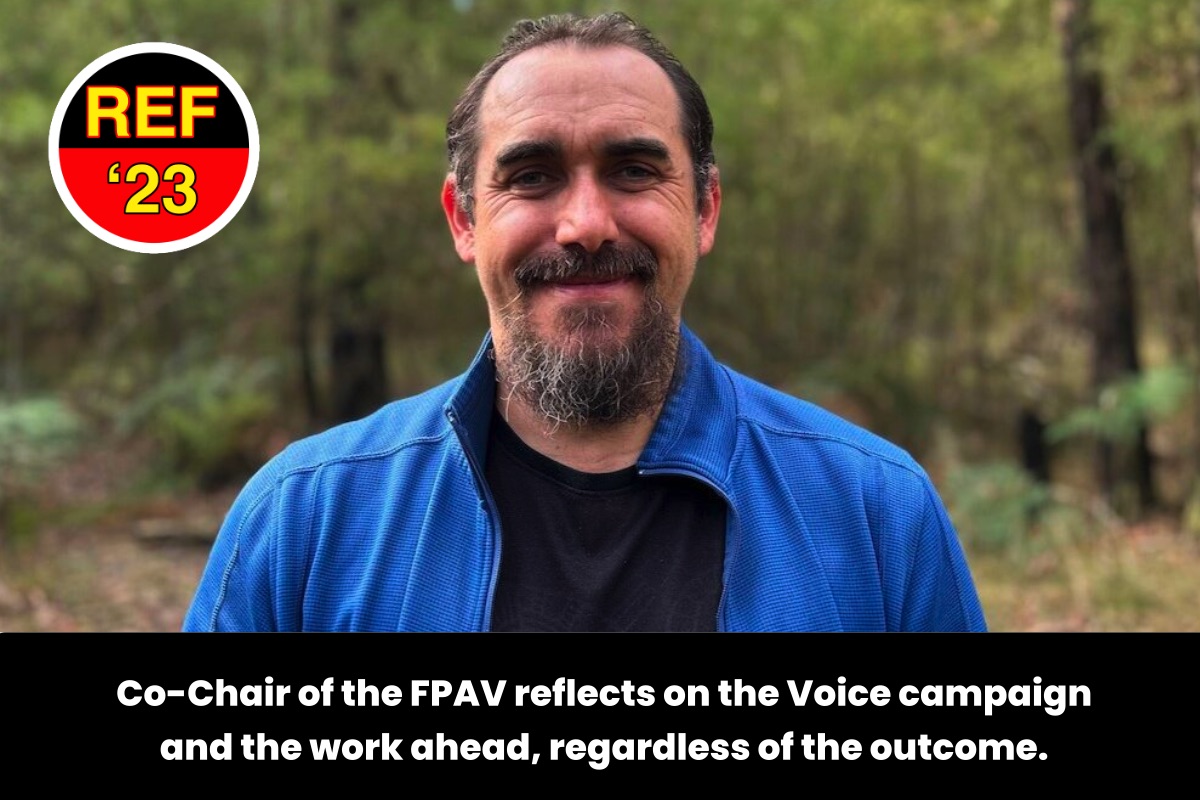
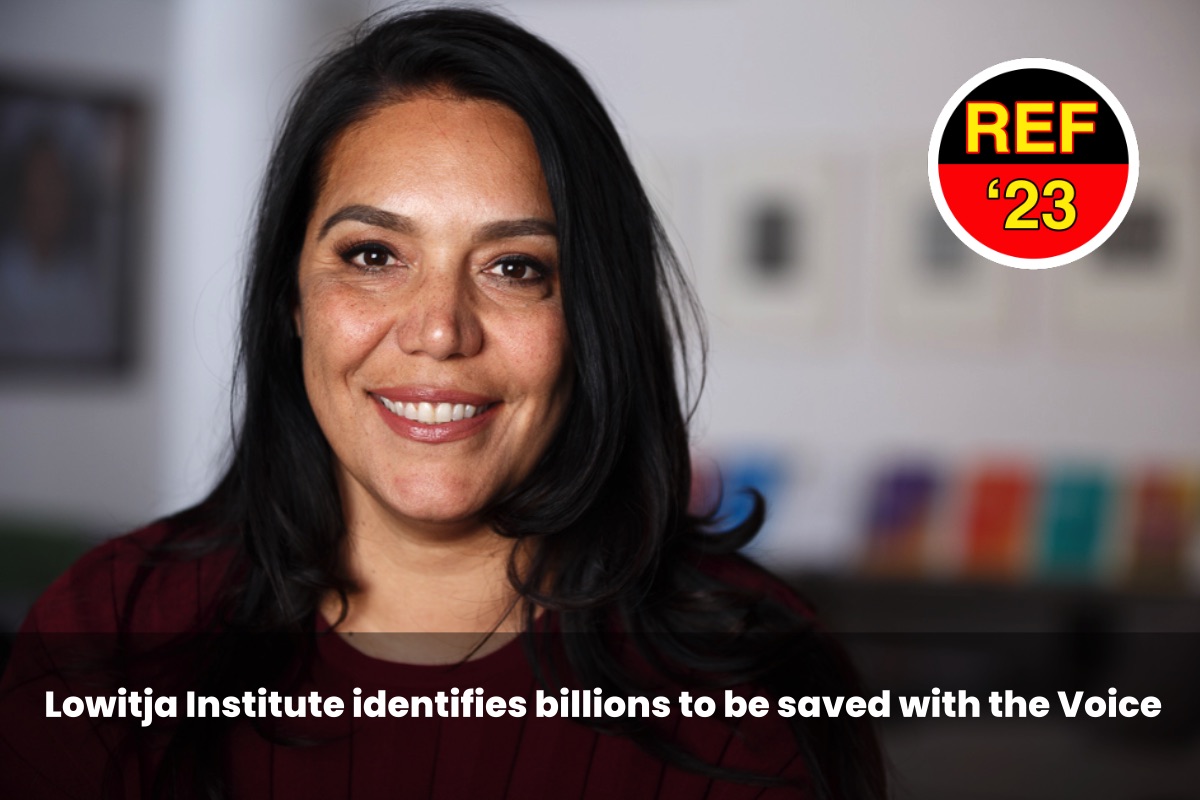
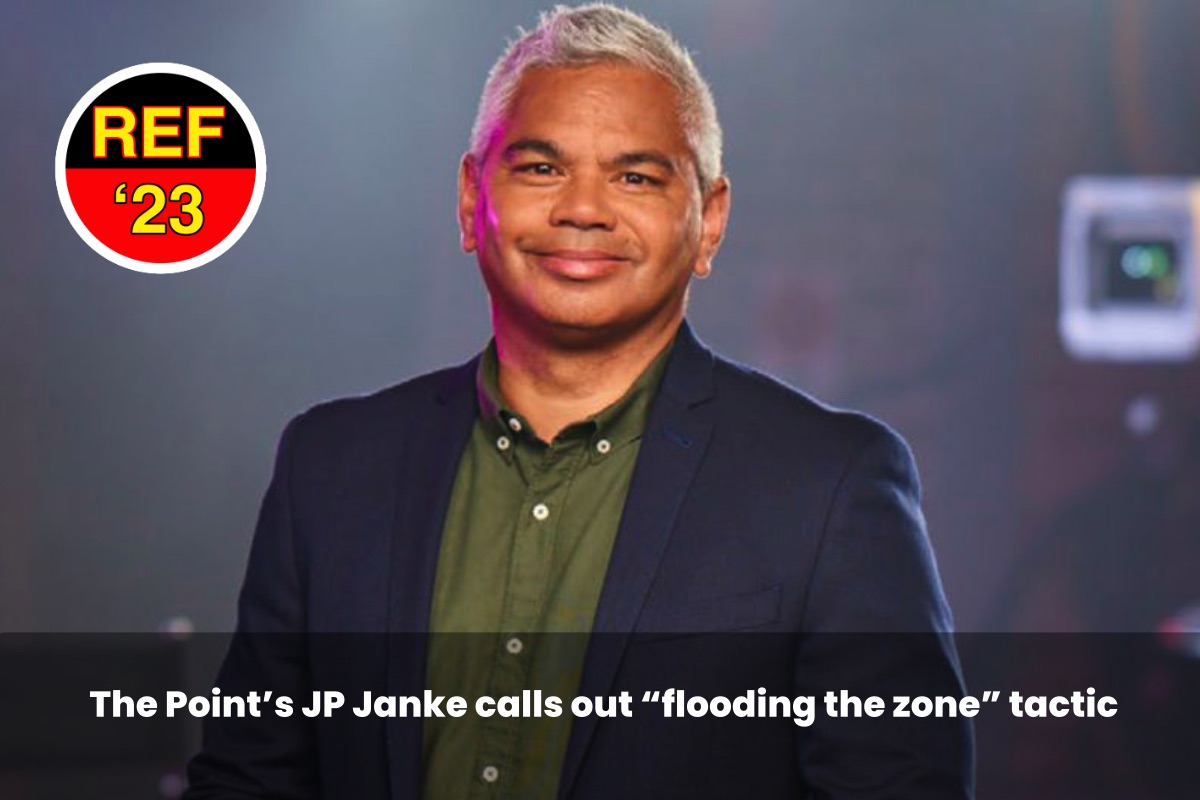
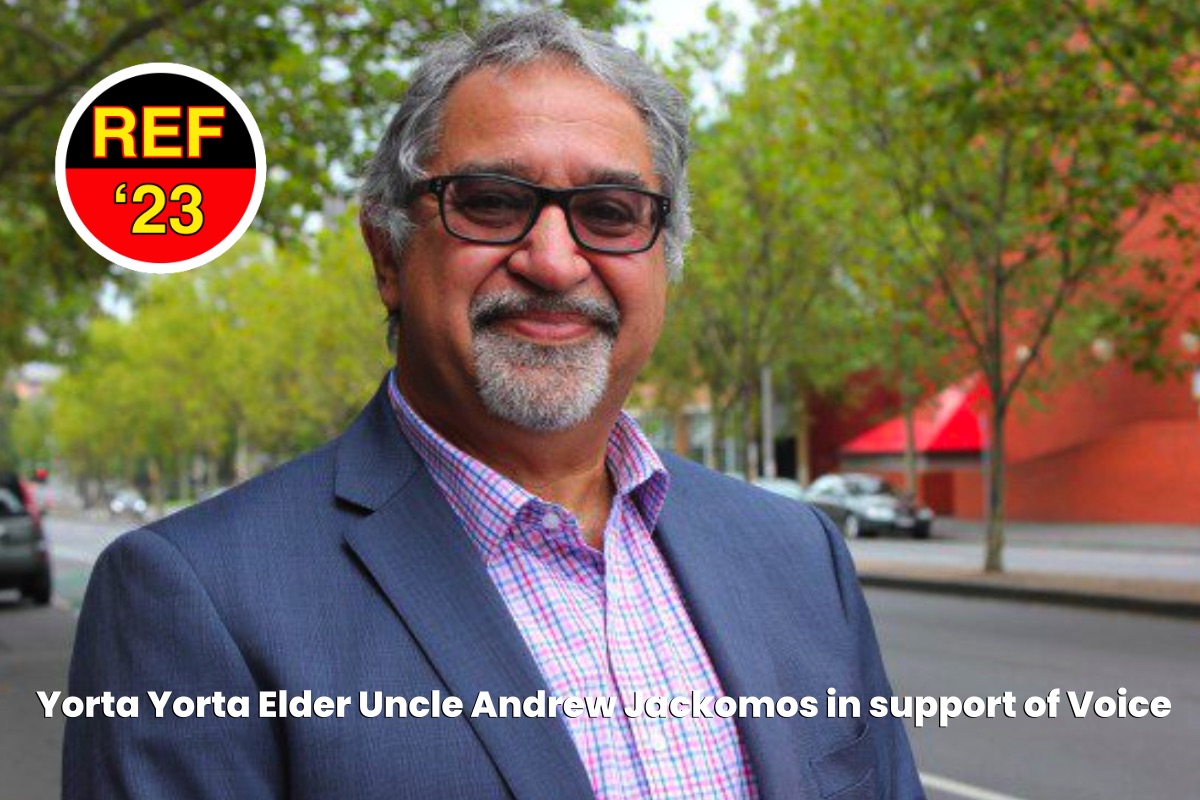
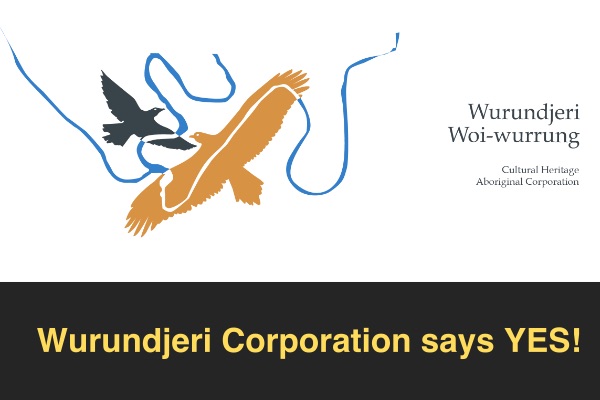

0 Comments